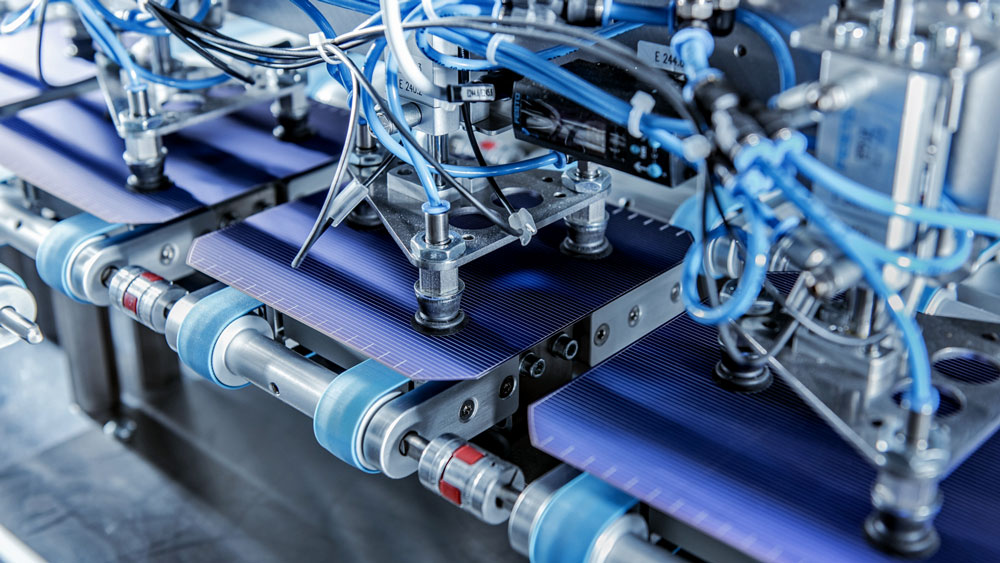
Regulators in Europe should throw their support behind re-establishing a solar manufacturing base in the continent that could reach a capacity of 20GW and support more than 100,000 jobs, Meyer Burger and SMA have said.
The two manufacturers have co-published a whitepaper, dubbed ‘Solar production in Germany: Strategic innovation leadership as a cornerstone of European energy sovereignty’, which outlines how Germany, and indeed Europe in general, could create a competitive solar manufacturing base led by technologies and innovations developed within the continent.
Try Premium for just $1
- Full premium access for the first month at only $1
- Converts to an annual rate after 30 days unless cancelled
- Cancel anytime during the trial period
Premium Benefits
- Expert industry analysis and interviews
- Digital access to PV Tech Power journal
- Exclusive event discounts
Or get the full Premium subscription right away
Or continue reading this article for free
It stresses that research and technology development in Europe could be built upon to establish a European production centre with a capacity of 20GW from wafer to module, that could create more than 100,000 sustainable jobs.
The white paper, which can be read here, argues that solar is approaching a turning point in its innovation comparable to the transition from 4G to 5G in mobile communications. But unlike in other sectors, the duo argue, most modern PV technology and intellectual property is still ‘Made in Europe’.
“In the context of this development, Germany and Europe may have the last chance of a renaissance in PV production – including a role as a pacemaker for the central key technology of renewable energies in the coming decades,” the paper reads.
Perhaps unsurprisingly given Meyer Burger’s pivot towards production of heterojunction solar modules, the ‘5G standard’ for photovoltaics, the company says, is a combination of heterojunction and SmartWire technology.
The paper outlines four specific measures which could be taken to incentivise European solar manufacturing, namely the use of funding instruments at both a national and European level, noting specifically economic stimulus packages implemented in the wake of COVID-19, to support the creation of solar manufacturing bases in Europe.
Meyer Burger and SMA have also called for a “more holistic” industrial strategy that goes beyond Germany’s Renewable Energy Sources Act, or Erneuerbare-Energien-Gesetz (EEG) as it is known locally. The duo have suggested that upcoming reforms to EEG be used to deliver more “energy sovereignty” for Germany, incentivising greater self-consumption of solar power by increasing thresholds for EEF surcharges while providing reliefs for C&I installations.
Furthermore, the white paper has called for the adoption of more “efficient and space-friendly” solar deployment methods such as agricultural PV and floating solar, deeming them to become “increasingly important” given the land use necessary for the “massive expansion” of solar required.
The companies have also urged Germany to embrace a national 10 million solar roofs target, and Europe a 100 million solar roofs target, with an “obligation” for new buildings to combine solar with intelligent home storage systems, driven by a simplification of tenant electricity models.
Gunter Erfurt, chief executive at Meyer Burger, said: “In the context of this development, there is an opportunity in Germany and Europe to use the boom in solar energy and to set the pace for this central key technology of renewable energies. For this we need a holistic industrial strategy that thinks the generation of electricity and the production of the necessary technologies together. We need short-term supportive measures that improve the framework conditions.”
Earlier this year PV Tech spoke to Gunter Erfurt, who provided exclusive insight into Meyer Burger’s new strategy and direction.






